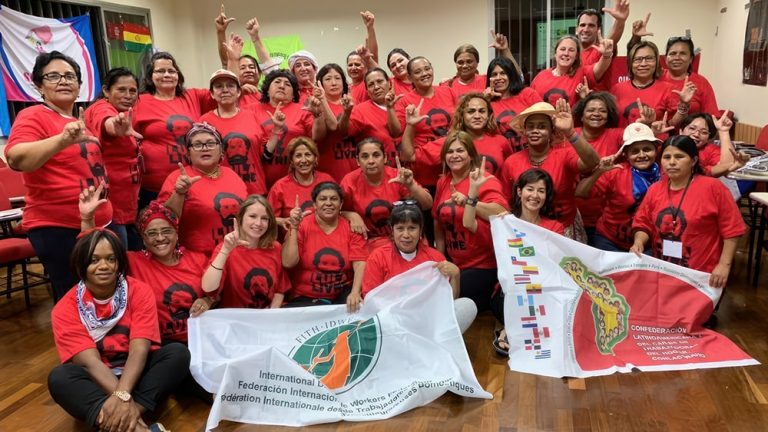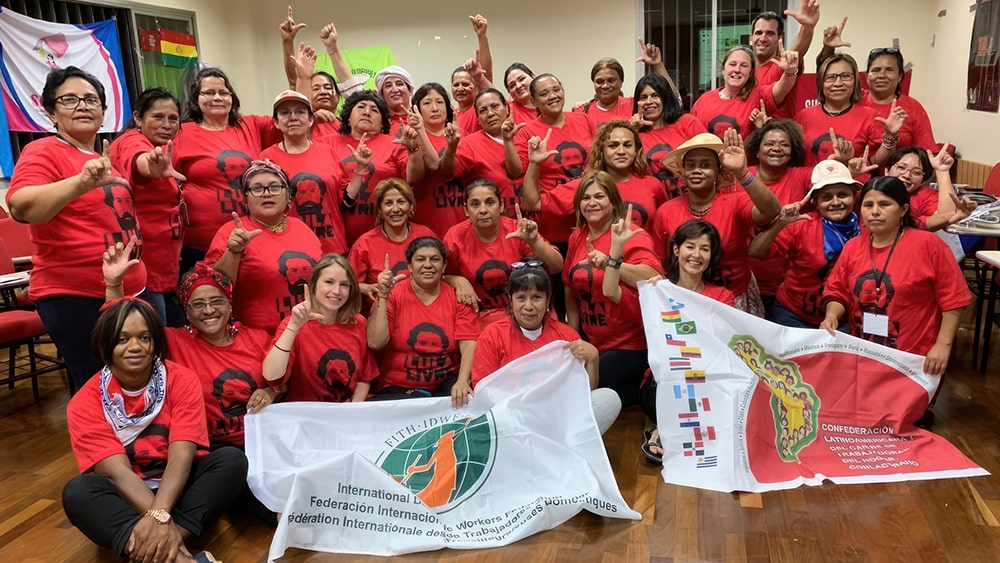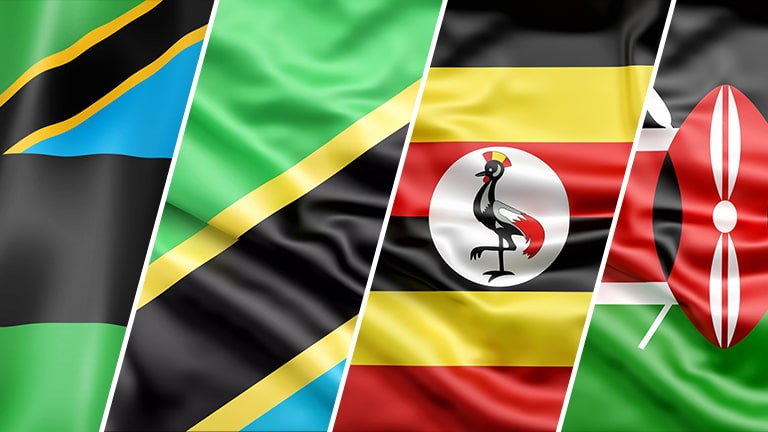DWN sent a letter on 19 Nov to Mark Harper, Immigration Minister of United Kingdom, to show our concerns and worries about the effects of changes of the visa system for migrant domestic workers. We urged the UK government not just to consult, but to enter into negotiations with the domestic workers representatives, to address the many problems of the lack of rights, protection and regulation of domestic workers.
Details
UNITED KINGDOM –
IDWN sent a letter on 19 Nov to Mark Harper, Immigration Minister of United Kingdom, to show our concerns and worries about the effects of changes of the visa system for migrant domestic workers. We urged the UK government not just to consult, but to enter into negotiations with the domestic workers representatives, to address the many problems of the lack of rights, protection and regulation of domestic workers.
A month later, a reply letter came. IDWN is disappointed with the reply from the UK government. It denies the fact that the change of visa system, including the restrictions of change of employers and length of stay to 6 months will increase the vulnerability of domestic workers to abuse. The government also rejects to ratify ILO C189.
IDWN LETTER TO MARK HARPER
19 November 2012
Dear Mr. Harper,
The International Domestic Workers’ Network (IDWN) watches with interest and worries about the effects of the UK Home Office changes of the visa system for migrant domestic workers, which no longer allow newly arriving migrant domestic workers to change employers.
Far too many cases in the past, when this rule was previously in force in the UK in the 1980s and 1990s, have proven that this regulation leads to worst cases of abuses of domestic workers by scrupulous employers. It creates slavery like conditions of personal dependency and leaves migrant domestic workers in the UK de facto without any human and labour rights.
The UK government argues that the new visa rule will contribute to cutting net immigration. We argue that only protection for migrant workers, including the application of a sound immigration policy would lead to the desired outcome in terms of regulating immigration flow and the labour market segment of domestic services. There is no evidence that the visa regulation which binds the worker to one employer had any impact on bringing immigration numbers of domestic workers down.
We are convinced that ratifying the ILO Domestic Workers’ Convention, C189 and implementing its provision into national laws, is the far better approach to resolving various issues of domestic workers.
We urge the UK government not just to consult, but to enter into negotiations with the domestic workers representatives from Justice 4 domestic workers, their trade union UNITE and their supporters (as for example Kalayaan), to address the many problems of the lack of rights, protection and regulation of domestic workers. There are other European countries, like for example Belgium and France, which have found innovative solutions to regulating the sector and to ensure protection to the workers at the same time. This should be possible in Britain too.
Domestic workers are workers and not visitors. They must have the same rights as any other workers in the UK. Any rights in theory are illusory if they do not have the right to change the employer and take action against the poor employment practices of an old employer. Domestic workers cannot be expected to take action against employers they still work for, since they live in their employers’ households.
Yours sincerely,
Myrtle Witbooi
Chair, IDWN
A REPLY LETTER FROM THE UK GOVERNMENT
18 December 2012
Dear Myrtle,
TO181892 – Changes to the visa system for migrant domestic workers.
Thank you for letter of 19 November to the Minister of State for Immigration. Your letter has been passed to me to reply.
You raise concerns over the changes to the Overseas Domestic Workers (ODWs) visa which no longer allows a change of employers in the UK.
We do not consider that the ability to change employer is necessary to provide protection. There are a range of options available to ODWs to seek protection such as; access to the National Referral Mechanism (NRM) if they have been trafficked to the UK; the ability to report abuse or confiscation of a passport to the police and as workers, the right to access the Employment Tribunal service or return home.
Not withstanding these protections we consider the best way to prevent an abusive relationship from being brought to the UK is to restrict access to the route and to test the validity of the working relationship before a visa is issued. To do this we have restricted the length of stay in the UK to 6 months and we require 12 months prior employment, a signed statement of terms and conditions of employment in line with the National Minimum Wage. Additionally a letter is handed to the ODW in person informing them of their rights in the UK and where to get help if needed. This letter is provided in a range of languages as well as English.
Since the introduction of the new rules we have not seen any evidence that these changes have led to an increase in abuse or trafficking. A recent Inter-Departmental Ministerial Group report on human trafficking showed that only a small percentage of trafficking victims entered the UK to work in the household of their employer and the expectation is that the changes to the Immigration Rules will reduce this percentage even further.
Although limiting ODWs time in the UK to 6 months will impact on our net migration figures, our primary objective was to return the route to the original intention and to remove the anomaly of granting a route to settlement to low skilled workers who do not meet the tighter settlement requirements which applicants from other work routes are increasingly expected to meet. Statistics for 2011 showed that 6,159 ODWs were granted extensions of stay in the UK and 979 were granted settlement. The route was only ever meant to be temporary to allow employers to bring their household staff for a short term. It was never intended as a route to settlement in the UK.
As set out in our explanatory memorandum on the International Labour Organisation (ILO) Convention No.189, laid before Parliament on 27 April, while the UK supports the principles behind the domestic workers convention we do not think that ratification of the Convention is appropriate for the UK as we already provide extensive employment and social protections for domestic workers and the lack of sufficient flexibility within the health and safety provisions would involve the extension of the Health and Safety at Work Act etc to private households and goes beyond the EU Framework Directive on improving health and safety at work.
Yours sincerely
Lorna Bavage
Migration Policy
- Read the IDWN letter in PDF.
- Read the reply letter from the Immigration and Border Policy Directorate in PDF.
More information:
Domestic workers demonstrate over UK visa changes | BBC News
Statement of Intent: Changes to Tier 1, Tier 2 and Tier 5 of the Points Based System; Overseas Domestic Workers; and Visitors | Home Office







